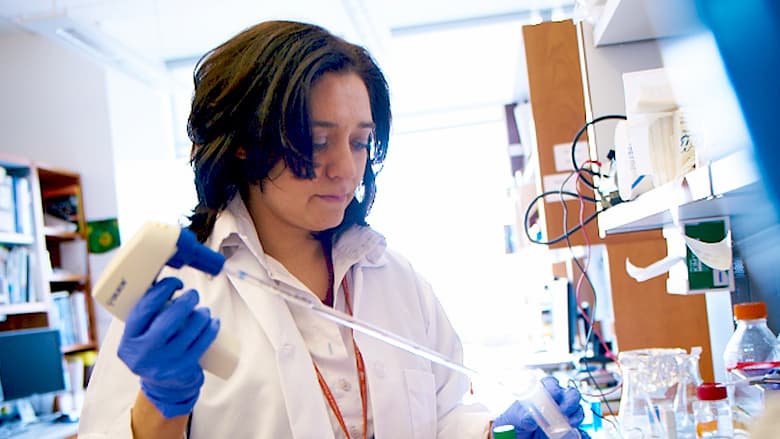
The Next Gene Therapy Breakthrough
Two gene therapies now exist that fix the genetic problem that causes sickle cell disease. Clinical trials performed at CHOP were instrumental in achieving FDA approval for these therapies. While this is an exciting development, CHOP is not done. Our researchers are working on ways to make gene therapy treatment even better and without the need for chemotherapy. This approach could expand access and reduce the cost of gene therapies.

Exceptional Patient Care and Treatment
Cure Sickle Cell Walk & Family Fun Day benefits sickle cell research and patient care at CHOP, where a large and comprehensive program offers all the specialty services children with sickle cell disease need. These services include newborn screenings, transfusions, 24-hour access to a hematologist, pulmonary and cerebrovascular care, psychosocial services, and the Hematology Acute Care Unit.

CHOP Sickle Cell Research Landmarks
- Two new gene therapies received FDA approval in December 2023. CHOP physician-scientists chaired the international study committee for one of the gene therapy clinical trials, consulted on the design for the other one, and testified before the FDA.
- CHOP was the first to identify the neuroradiologic findings in children with sickle cell disease and stroke, and to describe safe and effective use of transfusion therapy for the prevention of recurrent stroke.
- CHOP discovered novel red cell enzymes and factors regulating globin gene regulation and hemoglobin stability key to advances in gene therapy.
For All Kids
 The Cure Sickle Cell Walk & Family Fun Day is a celebration of all of our sickle cell warriors who have been cared for by CHOP’s Comprehensive Sickle Cell Center. We honor for each and every one of them. Our patient ambassadors represent the millions of children worldwide with sickle cell disease. As they share their stories, they help people understand what it’s like living with this disease is and why it’s worth supporting CHOP.
The Cure Sickle Cell Walk & Family Fun Day is a celebration of all of our sickle cell warriors who have been cared for by CHOP’s Comprehensive Sickle Cell Center. We honor for each and every one of them. Our patient ambassadors represent the millions of children worldwide with sickle cell disease. As they share their stories, they help people understand what it’s like living with this disease is and why it’s worth supporting CHOP.



